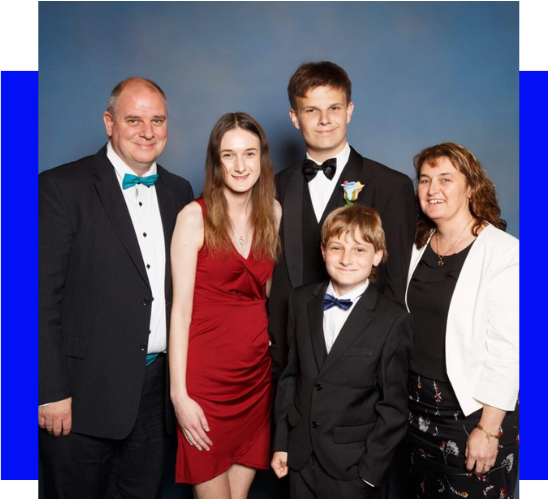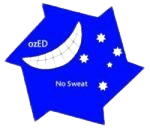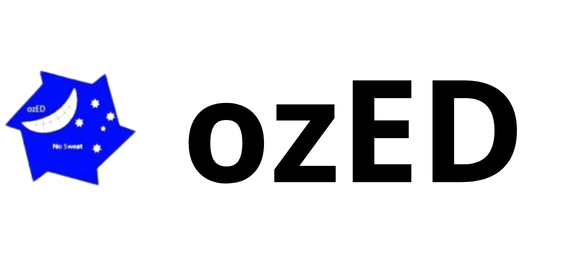About Us

Why and how was ozED formed?
Andrew and Natalie Williams formed ozED. Andrew and Natalie have three children, who are affected by ED. Andrew and Natalie felt the unfortunately common feeling of isolation. That feeling of “we must be the only one’s in Australia.” Along with that came the frustration of having to contact the United States of America, via the Internet to get any useful information. The lack of structure, guidance and support were the catalysts to ozED being formed.
ozED is an incorporated association and has Deductible Gift Recipient endorsement from the Australian Taxation Office.
ozED is an apolitical group, meaning we do not and will not attempt to pay dues or be financial to any political party. This however will not prevent us from being politically active. There will be times that we will need to utilise government and need to attempt to influence government.
ozED is committed to assisting families regardless of the type or severity of Ectodermal Dysplasia.
Why and how was ozED formed?
Author: Andrew Williams
ozED Story Chapter 1 The birth of ozED – Australian Ectodermal Dysplasia Support Group Inc.
In 2001 my daughter, Emily was born, our first child and she was perfect in every way. She would get sick and her temperature would spike to 39-40 degrees really quickly, often without warning. She was often taken to the doctor who would put her on antibiotics and her temperature would go down. She was slow at cutting her first teeth and when she did her front two teeth (which is all she initially got) were pointed like fangs. I joked that if it she was to bite another child (which she never did), at Kinder, then if they did not treat it as a snake bite, it could not have been her…
We took her to my dentist who told us that the others would come and if we had any concerns to bring her back when she was five or six and she would have another look at her. We sought a second opinion. We knew it wasn’t right, however we did not have a clue about what it could be. Just after her third birthday we took her to a paediatric dentist. She looked at Emily in the waiting room and took us in to her consulting room. She had a look a Emily and said; “Has anyone mentioned that your daughter probably has a medical condition called Ectodermal Dysplasia.”
I don’t recall that much after that. I remember driving with my wife home and kept thinking “What would she know, she is only a Dentist (sorry dentists, no offence intended)”. I did what every good parent should and got onto the internet and searched this “Ectodermal Dysplasia”. A website came up for an organisation called the NFED on the other side of the world in the USA. I clicked on their screen and I saw an image of a child that could have been Emily’s twin. I sat at the computer and cried for a short time and called my wife. My life seemed to have changed but I did not know how or why? The team at the NFED were great and sent us some information. We went to the Royal Children’s Hospital and the diagnosis was confirmed by the Dentistry Department. They were able to put us in contact with another family (who had previously consented to their details being released).
We contacted Tania and she was brilliant. She said she wanted to organise a family day, which she did. We went to Ballarat in Central Victoria and met for the first time, other families. The stories were remarkably similar and that was the first time I did not feel isolated. In the mean time we went off to “Genetic Counselling” which I had hoped for some answers. I walked out of this appointment, more confused, with more questions than answers and feeling that the Counselling component had been missed. Natalie, seeing my frustration organised another session with the genetics department. This again did not help. I felt this isolation sweep over me yet again. There was no-one in Australia that could help us? Natalie and I had the discussion about what we could do. If we had experienced this and others had also experienced this, then it only followed that others in the future would also be in the same position. We made the decision that we would form a proper support group for Melbourne and Victoria.
Neither of us had ever undertaking this type of task. I contacted the Genetic Support Network of Victoria (GSNV) and asked them “What do I do?” they provided me with a book, “In the Same Boat”. I then started researching the relevant laws and Natalie and I started to form a group. As we did this we suddenly realised that this was not going to be a local group but an Australian Group. We came up with the name and again the team at GSNV put us onto the graphics department of the Royal Children’s Hospital. We described the group as being something for an unusual condition. We described that we wanted the southern cross featured to represent Australia and we described how Emily would look at her Nan’s dentures and described them as “Moons”. They came up with our logo, hence why the moon/smile is on the logo. We registered the name ozED – Australian Ectodermal Dysplasia Support Group with the Government, got the constitution happening and set up a website (of sorts).
We launched ozED on 01 April 2004 (April fool’s day). We had members from all over Australia. We knew that traditional face-to-face meetings wouldn’t and couldn’t happen. So we elected to telephone conference our meetings. This was the start of our group. As stated earlier; I knew that with Emily’s diagnosis my world had changed and I began to see the how and why… and it was not negative but one of the strongest positives that I could ever have imagined.
THE STORY of ozED CONTINUES
Chapter two – The History of the ozED Camphrence
In 2004, not long after ozED was formed, I had the opportunity to go to a good friends “Buck’s Night”. Now the rules are simple; what happens at a Buck’s Night stays on the Buck’s night. I will however make an exception in this case. I was sitting at a table and one of the groom’s mates sat down. We had met before but that would be about the extent of it. We were talking and I told him about this new charity that I had formed to help children and people affected by Ectodermal Dysplasia. He laughed and told me about a new group that he had formed to help groups that help children and young people by providing therapeutic programs and camps. I told him that we were planning our first Conference and that I wanted this to be something that was great for the whole family not just a talk fest for the parents…
Tim from Purple Soup and I set about organising the first conference. I organised the Police Blue Light Disco Camp in Derby Hill in Maldon in Central Victoria. Why this site? It was cheap, it was in the town I was born and where my parents still lived and it seemed to have everything we needed. I organised people to speak and had a great program. Purple Soup and their team were set. The week before my three speakers cancelled and I had some time and space to fill… The Conference day arrived and our five families arrived. Our meet and greet started. The kids all went off and started to do the “purple soup” thing and the parents sat around and talked.
Suddenly it was lunchtime and the gap from my first absent speaker was gone. HOORAY!!! We had lunch and to see the kids beaming was inspirational. I am not sure what happened for the rest of the day it all blended into one. Natalie (the organised one) was brilliant with keeping everything on track (as of course she was in the preparation and planning of the event).
We went to the local pub and had a meal together. We were families that had never really met, but at the pub that night we had a reunion or get together, it was like we had known each other for years. Day two saw 2 teenage boys attend camp. Both had their hoodies on with their sunnies. It was clear that this was not going to be their ‘thing’. By morning tea, the hoodies and sunnies were off, they were taking on a leader role with the younger kids. There transformation was what I had dreamed of achieving, we had made a difference. The kids said they love camp and the adults said they loved the conference. One of the kids coined it a “Camphrence” and that what it should be known as.
The next couple of camps were organised by Purple Soup. These were equally brilliant events. The Camphrences grew in size and so did the expense and therefore, the Camphrences had to go on without the full Purple Soup team.
What do I get for my membership?
ozED will produce an E-newsletter, hold bi-monthly meetings, organize a National Camphrence (more than a family camp, more than a conference), and host family days. ozED will also liaise with other organizations around the world to keep you up-to-date on any research and interesting developments in the world of ED. ozED will also develop professional awareness packages for the range of individuals that you and your family will need to interact with. But most importantly, and as our highest priority, you will be able to talk to other individuals and/or families that have been through what you are facing and can provide answers that books and information alone cannot.
ozED provides the following support and services to our members:
- Advocacy and representation at education, medical & other organisations (e.g. energy providers)
- Lobbying Government Bodies (Local, State & Federal for appropriate funding and support
- National Camphrence (more than a family camp, more than a conference) – members can attend conference for a significantly discounted rate
- Quarterly Virtual Meetings
- Hosting State Based Family Days
- Newsletters
- Private Facebook Group
- Information Webinars with Specialists
- Webinar Recordings
- Access to resources (school information packs, professional awareness packs)
Who will do the support?
The most qualified individuals to support people and families affected by ED are those who have themselves been affected by ED. It is an uncommon disorder that gives us a common bond. When individuals contact ozED to become members, they will be connected with someone who has similar circumstances and is as close in locality as possible. This means that as we grow, networks and community groups will develop. I envision that these groups/networks will start organizing their own informal meetings and outings. This is where ozED may be able to assist by providing the venue and insurance, among other things, to help these groups develop and grow
What about isolated or remote people?
In today’s information technology community, distance can only be as far as your computer or telephone. ozED currently uses Facebook and Twitter. We hold our meetings via zoom. This will enable everyone from Perth to Cairns, Darwin to Hobart to be able to participate. It may also mean that other guest speakers from around the country/world can also present to our group.
Where does ozED get their money?
At the moment, the only money that ozED has is what it will derive through membership. We will certainly be seeking sponsorship at the corporate level and will accept any donations. We are registered with the Australian Taxation Office as a Deductible Gift Recipient. So the more members we can get, the better off the organization will be.


